Senators hear new perspectives on modernizing the Official Languages Act

Members of the Senate Committee on Official Languages travelled to New Brunswick to hear from witnesses, continue their study on the modernization of the Official Languages Act and release the content of their second interim report.
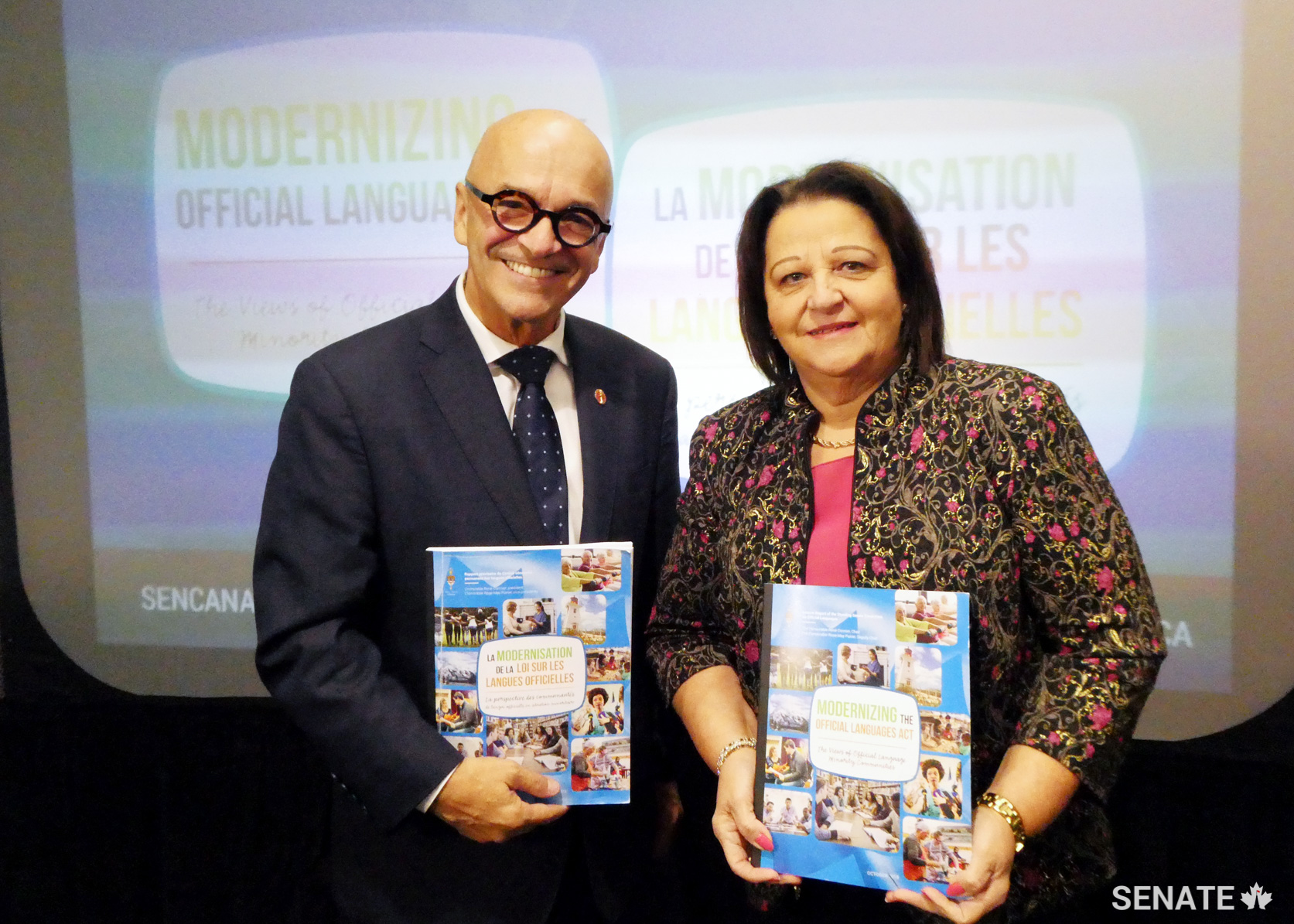
From Wednesday, October 24, to Friday, October 26, witnesses of the evolution of the Act since its adoption in 1969 and representatives of the justice sector provided testimony and recommendations to the committee.
Interim Report Release
The committee’s interim report, Modernizing the Official Languages Act - The Views of Official Language Minority Communities, was released on Thursday, October 25, at a press conference hosted by the committee Chair, Senator René Cormier, and the Vice-Chair, Senator Rose-May Poirier. The press conference was held at the magnificent Capitol Theatre in downtown Moncton.
The senators were pleased to share the report findings, which reflect a high degree of consistency and consensus between the anglophone and francophone minority communities. These communities clearly expressed the urgent need for action to modernize the Act.
The senators then hosted members of official language minority communities at an informal cocktail reception at the Aberdeen Cultural Centre where they discussed the report’s findings based on the communities’ experience living with the Act. The centre is the largest Acadian cultural centre in the region and employs nearly 75 people in the arts and culture field.
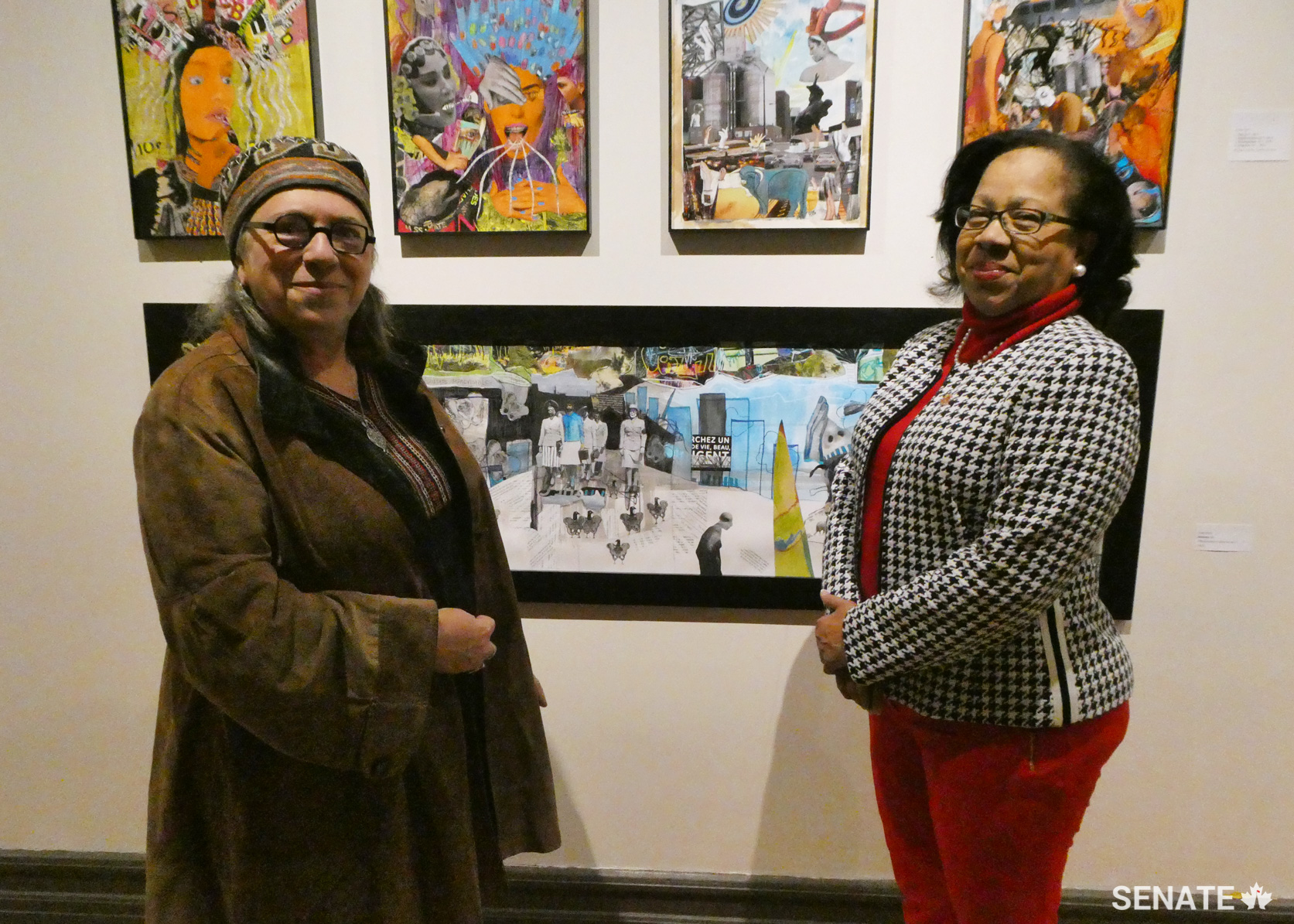
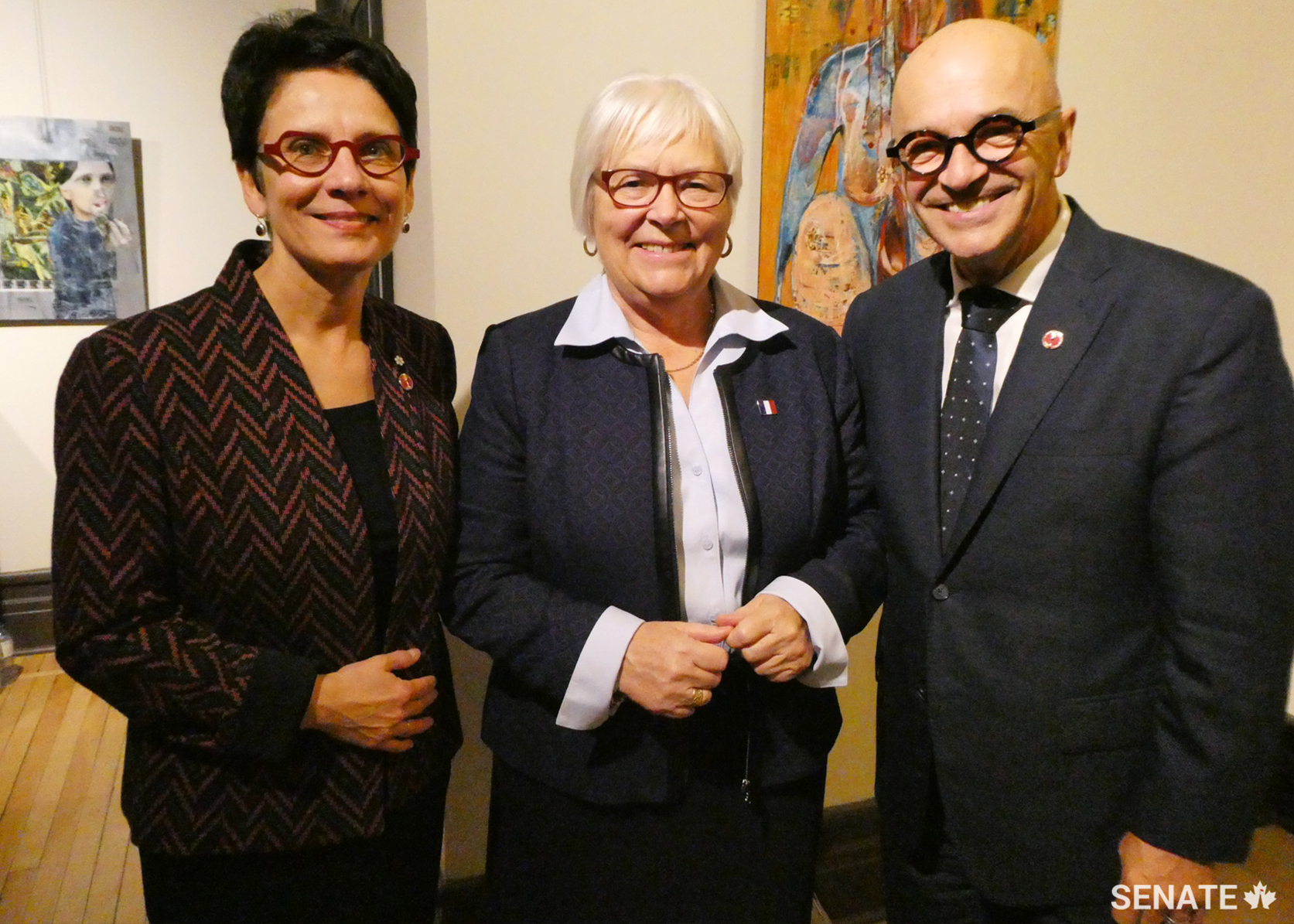
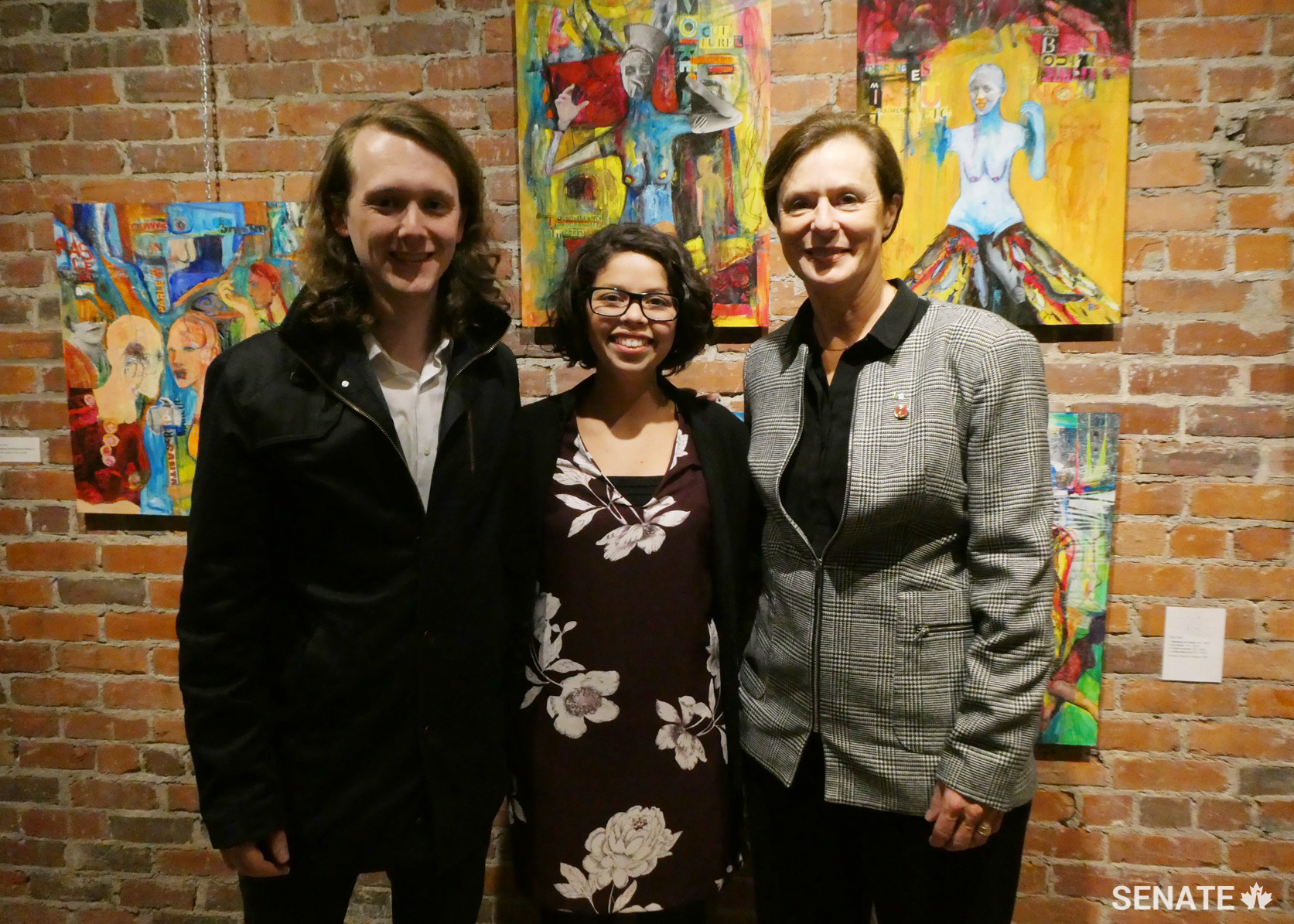
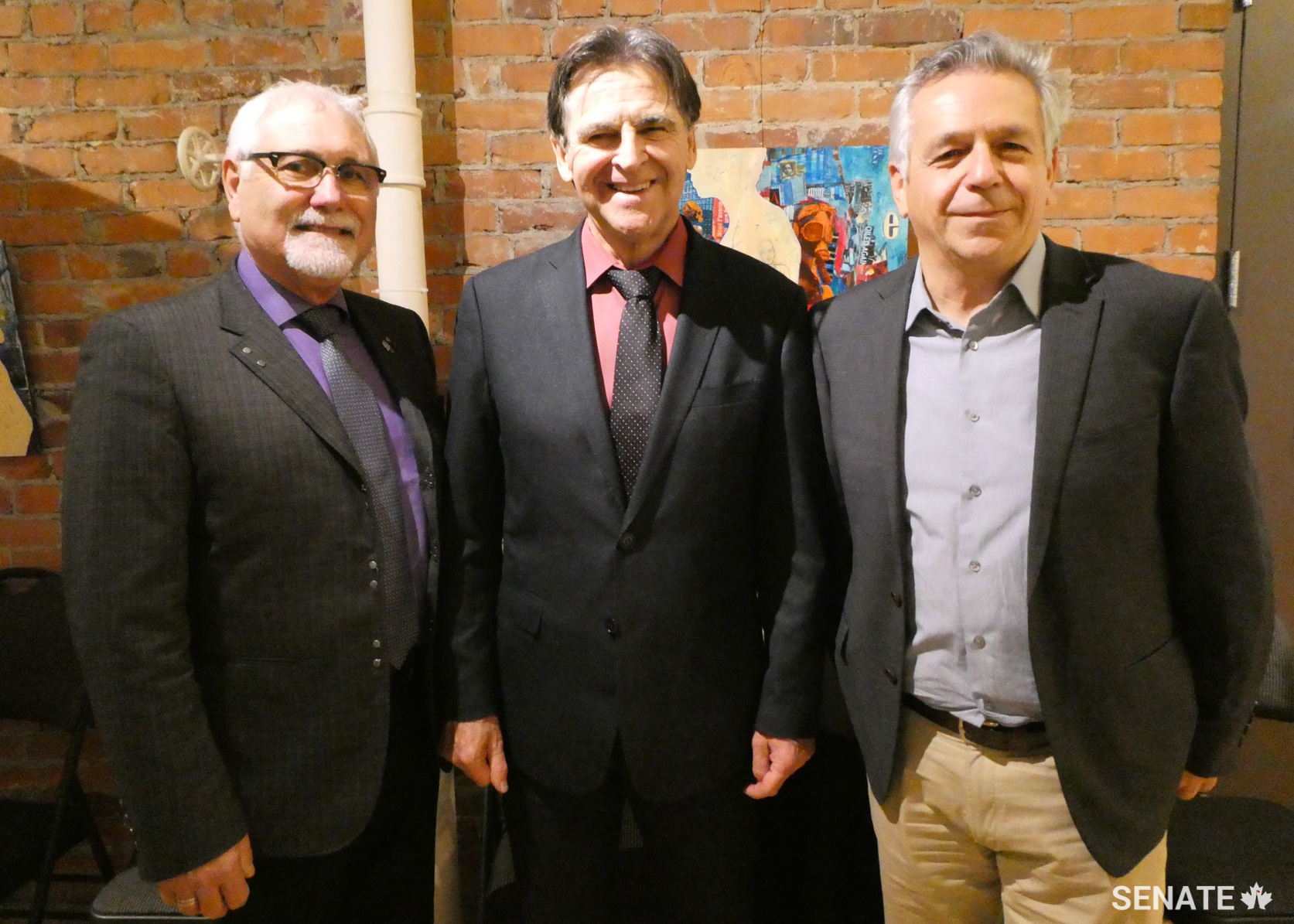
Witnesses of the Evolution of the Act
The third phase of the committee’s study on the modernization of the Official Languages Act focuses on the leaders and lawmakers who witnessed first-hand the evolution of the Act from its adoption in 1969 to revisions in 1988 and 2005.
The testimony was well-articulated, thorough and powerful. Witnesses stressed the importance of maintaining an open and respectful dialogue around efforts to modernize the Act. The witnesses came to a consensus on the need to periodically review the Act, on the federal government’s role in implementing it, and on expanding the powers of the Commissioner of Official Languages.
For example, City of Moncton officials testified that the City unanimously adopted its official languages policy in the early 2000s, revised it three times and was about to adopt a new version to better adapt its practices to the needs of the population.
In addition, Moncton Mayor Dawn Arnold demonstrated her deep commitment to promoting bilingualism. She said that it would be desirable to define the linguistic obligations of the City of Ottawa, as the capital of Canada, and of federal institutions in the National Capital Region in a modernized Act.
The Interim Commissioner of Official Languages for New Brunswick, Michel Carrier, also spoke eloquently about the history of official languages in his province and recommended that the federal government draw on the province’s experience to modernize the Act. His recommendations included formally recognizing the value of the work done by translators and interpreters, clarifying the responsibilities of deputy ministers in implementing the Act, and identifying a central agency responsible for its implementation.
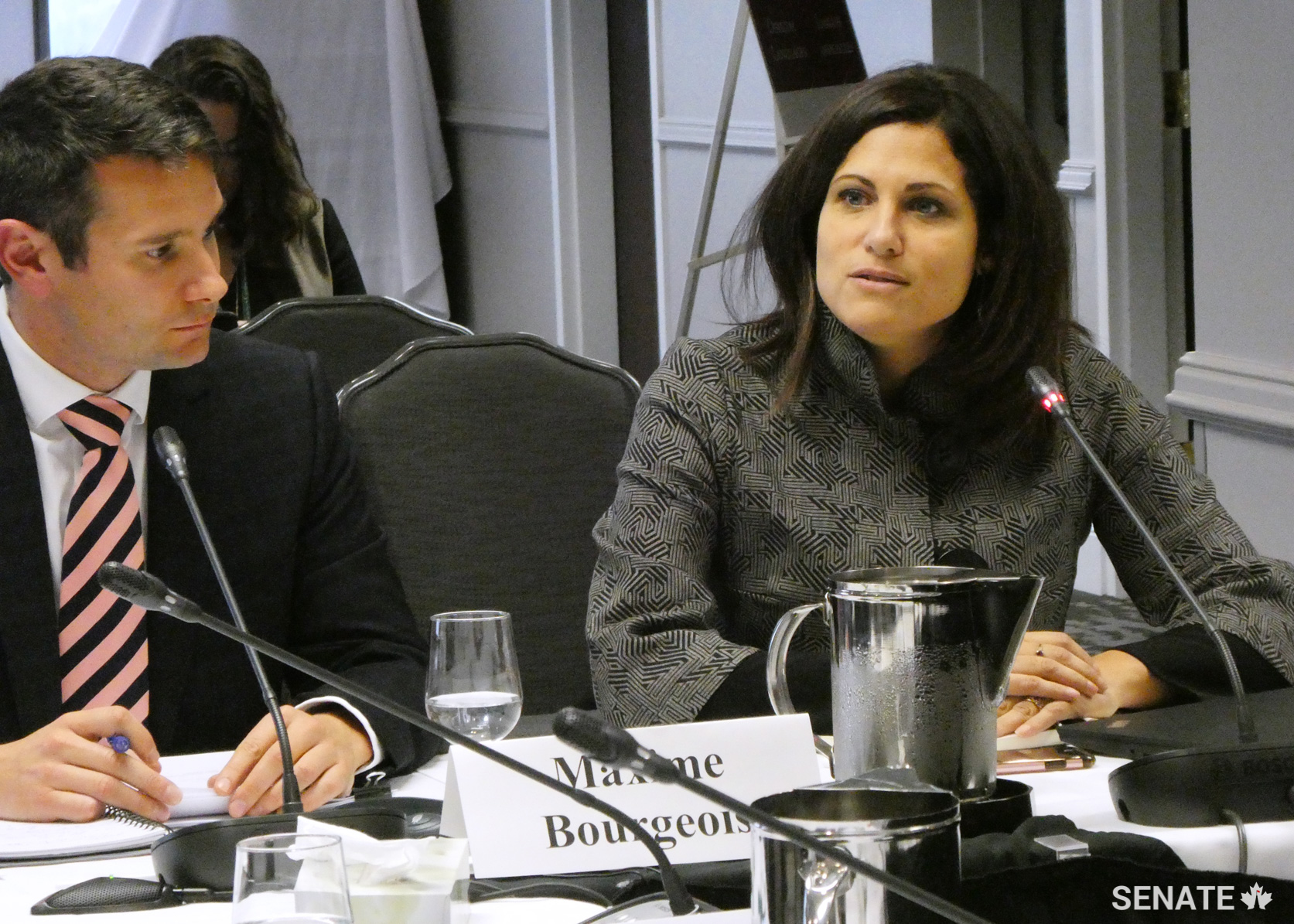
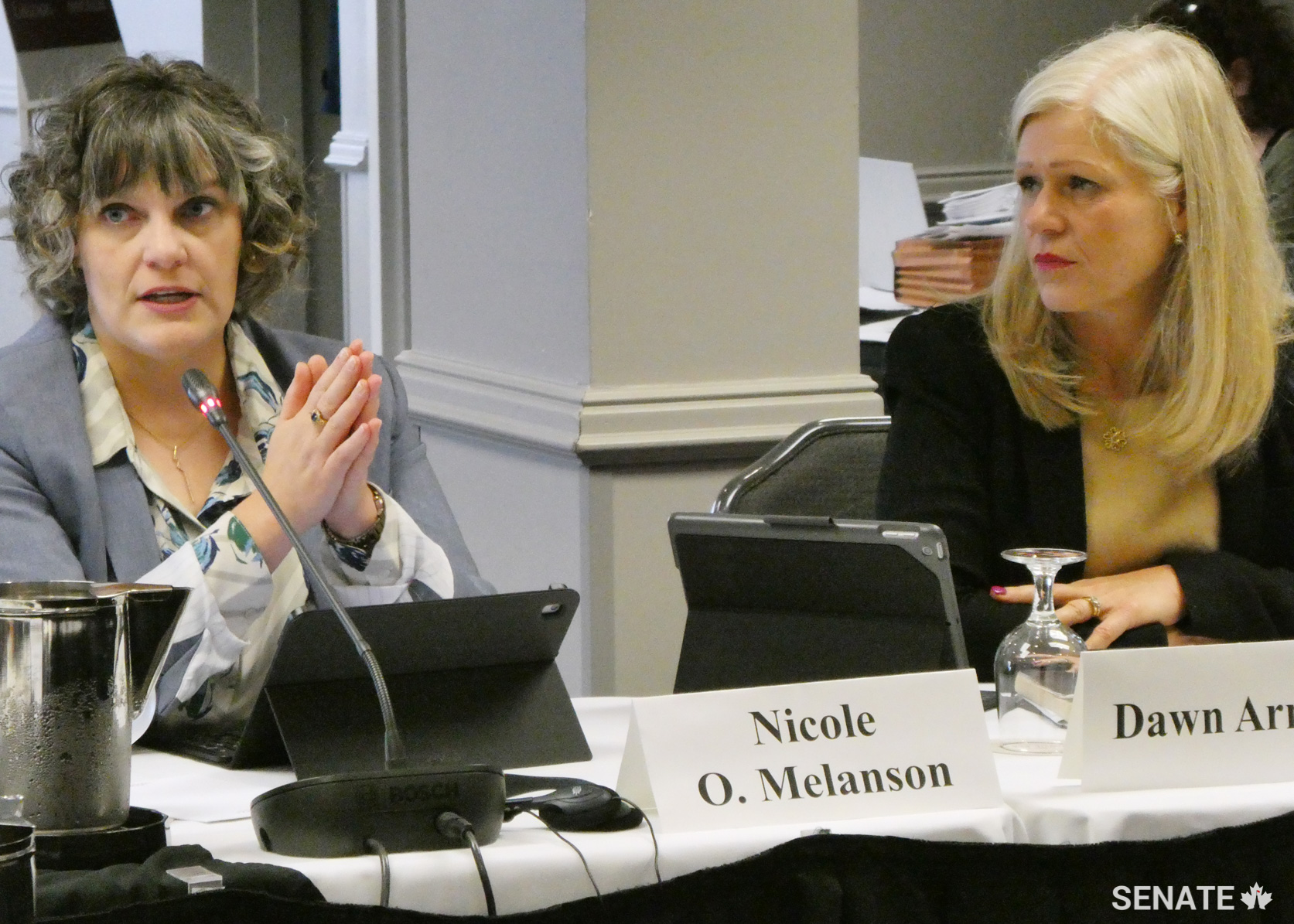
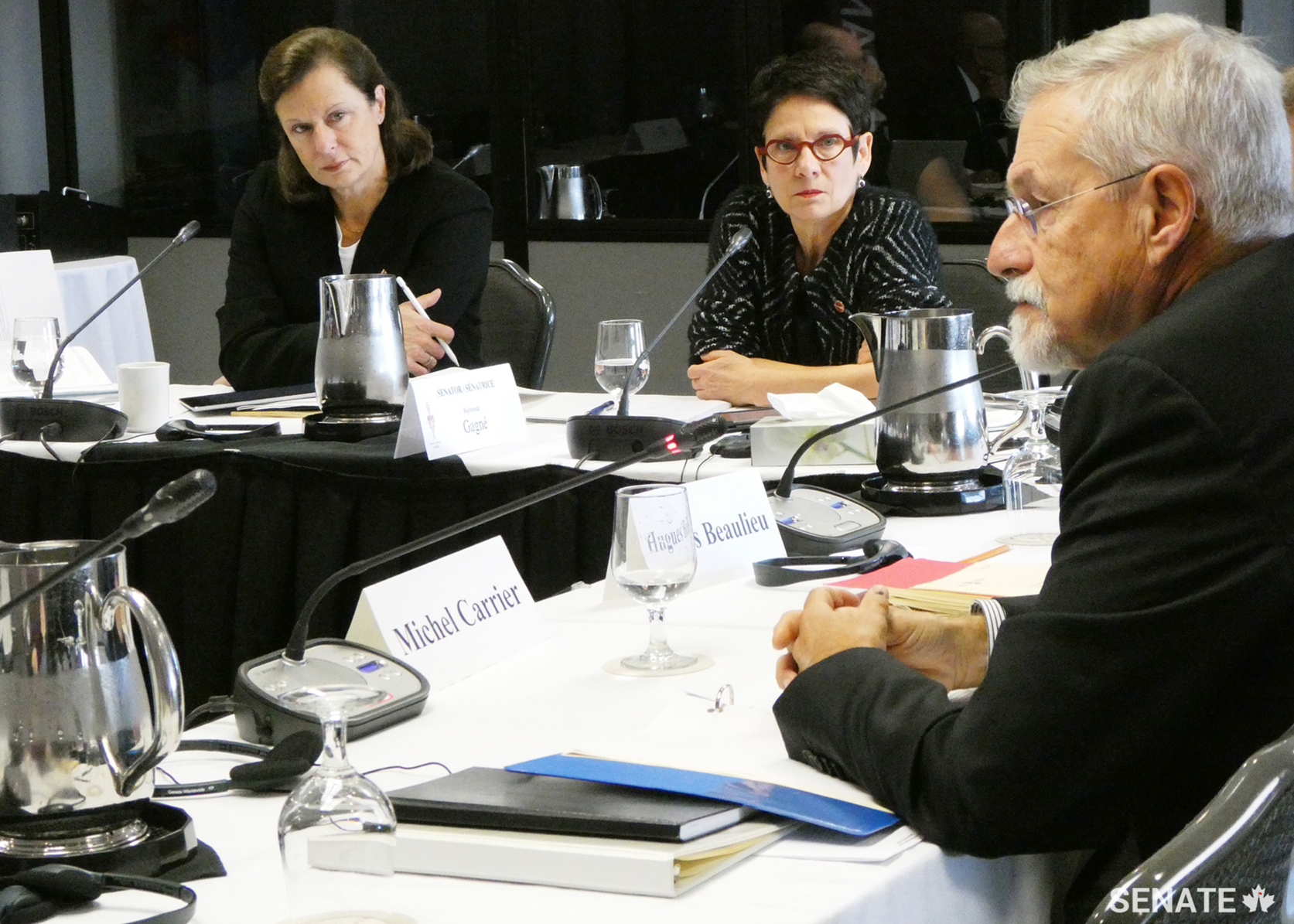
The Justice Sector
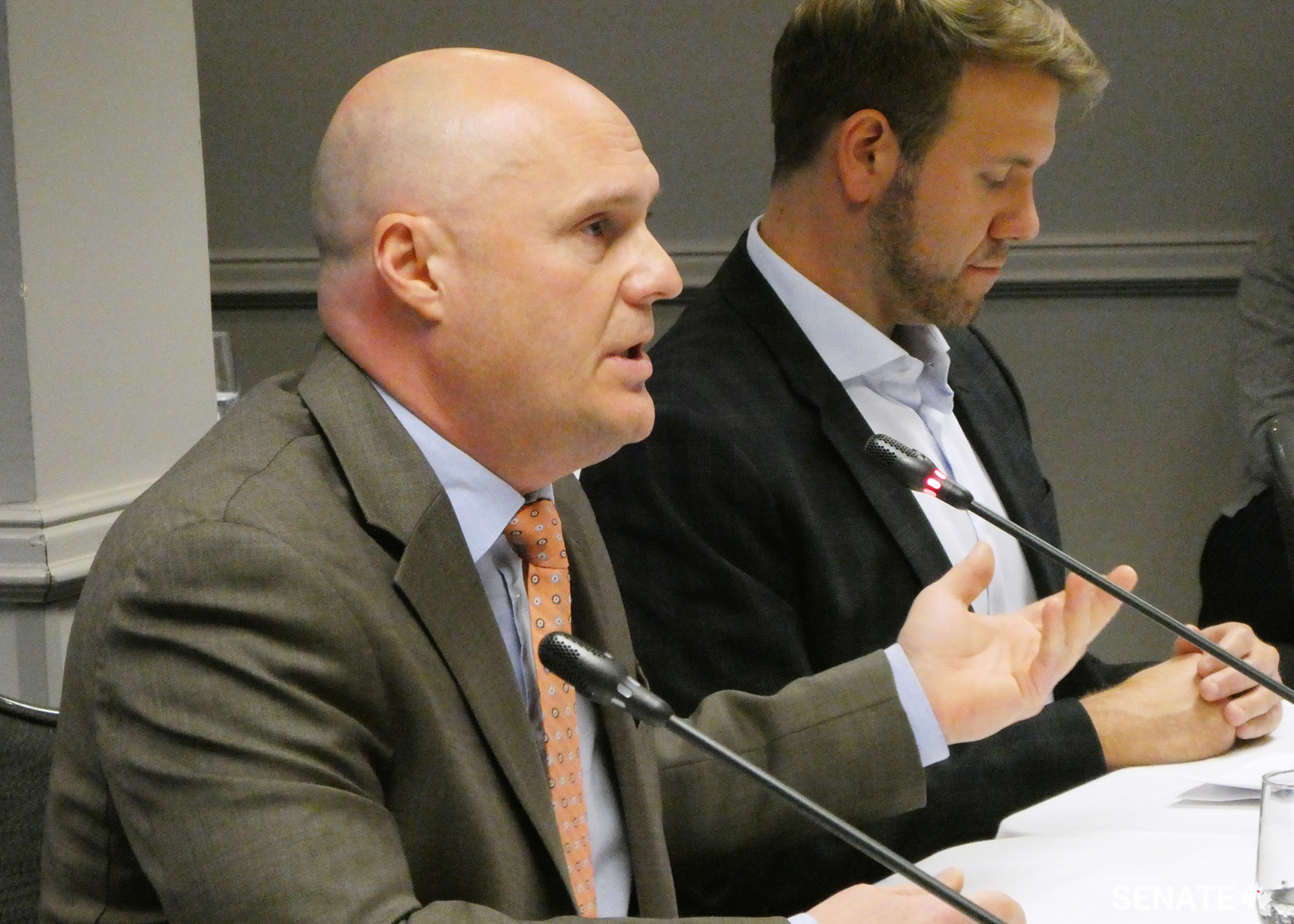
Finally, the committee met with representatives from the justice sector, including witnesses in the legal education field, law professors and lawyers, who spoke about the importance of modernizing the Act.
The witnesses said that they wished to see Supreme Court of Canada justices be bilingual at the time of their appointment. They also agreed that court decisions should be translated into both official languages of equal quality and they recommended that English and French training be provided to lawyers, clerks, municipal police officers and anyone else who plays an essential role in the administration of justice in Canada.
Related articles
Tags
Committee news
Senators hear new perspectives on modernizing the Official Languages Act

Members of the Senate Committee on Official Languages travelled to New Brunswick to hear from witnesses, continue their study on the modernization of the Official Languages Act and release the content of their second interim report.

From Wednesday, October 24, to Friday, October 26, witnesses of the evolution of the Act since its adoption in 1969 and representatives of the justice sector provided testimony and recommendations to the committee.
Interim Report Release
The committee’s interim report, Modernizing the Official Languages Act - The Views of Official Language Minority Communities, was released on Thursday, October 25, at a press conference hosted by the committee Chair, Senator René Cormier, and the Vice-Chair, Senator Rose-May Poirier. The press conference was held at the magnificent Capitol Theatre in downtown Moncton.
The senators were pleased to share the report findings, which reflect a high degree of consistency and consensus between the anglophone and francophone minority communities. These communities clearly expressed the urgent need for action to modernize the Act.
The senators then hosted members of official language minority communities at an informal cocktail reception at the Aberdeen Cultural Centre where they discussed the report’s findings based on the communities’ experience living with the Act. The centre is the largest Acadian cultural centre in the region and employs nearly 75 people in the arts and culture field.




Witnesses of the Evolution of the Act
The third phase of the committee’s study on the modernization of the Official Languages Act focuses on the leaders and lawmakers who witnessed first-hand the evolution of the Act from its adoption in 1969 to revisions in 1988 and 2005.
The testimony was well-articulated, thorough and powerful. Witnesses stressed the importance of maintaining an open and respectful dialogue around efforts to modernize the Act. The witnesses came to a consensus on the need to periodically review the Act, on the federal government’s role in implementing it, and on expanding the powers of the Commissioner of Official Languages.
For example, City of Moncton officials testified that the City unanimously adopted its official languages policy in the early 2000s, revised it three times and was about to adopt a new version to better adapt its practices to the needs of the population.
In addition, Moncton Mayor Dawn Arnold demonstrated her deep commitment to promoting bilingualism. She said that it would be desirable to define the linguistic obligations of the City of Ottawa, as the capital of Canada, and of federal institutions in the National Capital Region in a modernized Act.
The Interim Commissioner of Official Languages for New Brunswick, Michel Carrier, also spoke eloquently about the history of official languages in his province and recommended that the federal government draw on the province’s experience to modernize the Act. His recommendations included formally recognizing the value of the work done by translators and interpreters, clarifying the responsibilities of deputy ministers in implementing the Act, and identifying a central agency responsible for its implementation.



The Justice Sector

Finally, the committee met with representatives from the justice sector, including witnesses in the legal education field, law professors and lawyers, who spoke about the importance of modernizing the Act.
The witnesses said that they wished to see Supreme Court of Canada justices be bilingual at the time of their appointment. They also agreed that court decisions should be translated into both official languages of equal quality and they recommended that English and French training be provided to lawyers, clerks, municipal police officers and anyone else who plays an essential role in the administration of justice in Canada.


